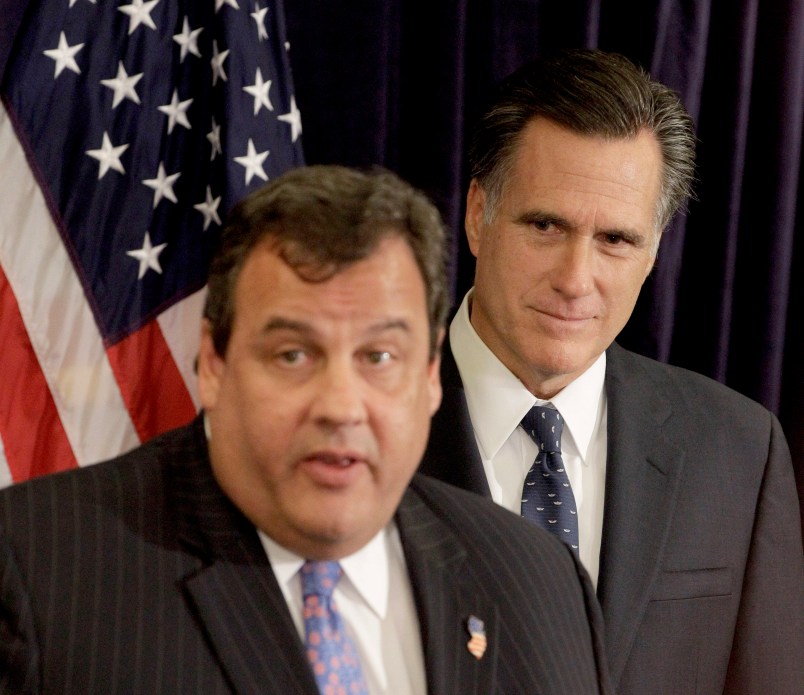A once-promising roster of Republican presidential hopefuls in 2016 is slowly coming apart, tarnished by individual scandals as well as the struggles of some candidates to keep faith with the conservative base’s stubborn rightward shift.
New Jersey Gov. Chris Christie is the latest to fall from grace, as a political retribution-laced scandal implicating his top officials continues to make national headlines, fueling a narrative about his alleged history of being a bully. Christie’s plunge is particularly painful for Republican operatives because of his dually strong conservative record and cross-partisan appeal.
Late last month, before Christie apologized for his aides’ decision to cause traffic jams on the George Washington Bridge, he was leading Hillary Clinton by two points in a national CNN/ORC International poll. By late last week, he was trailing her by 13 points, according to an NBC News/Marist poll.
Christie is not the only A-list Republican whose standing has diminished.
Sen. Marco Rubio (R-FL), once heralded as the GOP’s “savior,” alienated his conservative base by crafting and voting for comprehensive immigration reform last summer. Then he alienated those he won over by withdrawing from the effort after it became clear the House would reject it. A young and charismatic conservative whose diverse background made him an attractive leader, he’s now considered a flawed candidate among his own party base.
The 42-year-old senator’s struggles raise questions about whether he’ll even attempt a presidential run in 2016, given that he cannot simultaneously seek re-election to the Senate due to a Florida law that prohibits candidates from appearing on the same ballot twice.
Sen. Rand Paul (R-KY), who enjoys strong name recognition and unassailable conservative credentials, has been tarnished by embarrassing revelations of plagiarism. He appears to have plagiarized large chunks of his book as well as speeches and op-eds. His column was canceled by the Washington Times. His initial petulance toward media coverage exacerbated his woes until he eventually said he’d use footnotes and more carefully vet what his staffers write.
Then there’s Jeb Bush, the former governor of Florida and establishment favorite. His family name may or may not be rehabilitated by 2016. But even if it is, Bush’s bigger problem is that he appears to have all but disappeared from the national debate as his party’s rightward leap forces him to defend his conservative bona fides. His own mother recently poured cold water on his ambitions, saying there have been “enough Bushes” in the White House.
Republican donors are feeling so dejected that one operative told BuzzFeed, “You know what a lot of them say to me? I think we need Mitt back.”
The GOP’s curse of 2013 does appear to have one exception: Rep. Paul Ryan of Wisconsin, the chairman of the House Budget Committee and the party’s 2012 vice presidential nominee. Ryan took steps to smooth his rough partisan edges last year, cutting a bipartisan budget deal that overwhelmingly passed Congress and strategically leaking his new-found desire to do something about poverty. But he remains vulnerable due to his unpopular ideas, which include massive tax cuts for upper incomes and partial privatization of Medicare.
Of course, presidential speculation three years away comes with its share of caveats. Among them is the fact that Democrats’ strength in 2016 is virtually synonymous with Hillary Clinton’s strength, and if she doesn’t run the party’s roster may be flawed or packed with mid-tier candidates. But the Republican woes are particularly salient because of the party’s growing disadvantage in the electoral college due to demographic trends.










